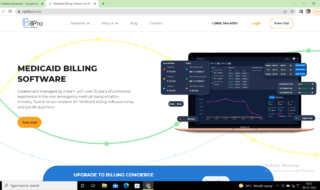What do penguins, pandas and hummingbirds have to do with the online visibility of your company? As it turns out, quite a lot.
These are the names of some of Google’s algorithm updates—a process that essentially redraws the lines of what Google is looking for in a top-ranking website.
Broadly speaking, Google Panda prioritized content quality, Google Penguin link-building practice and Google Hummingbird user intent and natural language queries, with each one redefining the exact definition of a fully optimized site.
Essentially, as a living breathing entity that strives to best service their searchers, Google is continually re-evaluating if what they are doing is indeed meeting this core mandate. So, while you may have been diligently creating content according to what you thought Google wanted, their wants are by no means set in stone.

The result is you could see a sometimes major drop in ranking without seemingly doing anything to deserve such a fate.
And sure, staying abreast of the SERP trends takes resources and expertise—and is still not a perfect science. (Full disclosure: we’re writing to you from our lofty position as an award-winning SEO agency and let’s just say that this is not a job for the faint of heart.)
One thing is for sure, however, to recover from Google algorithm updates, you have to take a proactive approach. Rather than waiting for them to get you, you have to get up close and personal with Google—like seriously up close, and seriously personal. You’ve got to stay on top of Google’s deepest desires.
Contents
Google Algorithm Updates and Your SIte
The reality is, in the world of contemporary marketing, Google is still the big cheese. They hold in the region of 70% market share when it comes to desktop search and a whopping 94% when it comes to mobile. If you’ve just optimized your site with a specific set of factors in mind, Google’s algorithm updates can set your overall visibility for a spin.
One of the most recent Google prioritizations, for example, is Mobile First Indexing. Understanding that the search habits of consumers are moving to on-the-go, Google has reacted by front-and-centering mobile usage in their ranking systems.
As Google says, “almost all indexing on your site comes from the mobile site.”
Like many Google updates, when Mobile-first was rolled out in July of 2019, unless you were paying attention, this shift could wreak havoc on your SERP positioning. The fact for business owners is that only 13% of users are able to retain their position across all devices.
And Mobile-first is just one of many algorithm shifts.
While nobody can fully predict Google’s next move, these updates by no means have to spell your demise:
3 top tips to recover from Google algorithm updates
- Get to know Google’s rigorous testing methods. One of them is that they employ raters to provide feedback on whether the items that are appearing at the top of the search results are worthy of their position. Here are the rating guidelines. By staying up-to-date with this, you will give yourself the best shot of knowing if you are aligned to the kind content they are aligned to.
- Google says that your best bet is to create great content. If you are doing this, the theory goes, you should not fall prey to the nasty updates. One of the ways to do this is to defer to experts, particularly if your business falls into the YMYL (Your Money, Your Life) category which includes legal, financial and medical industries. Like many of us, Google wants to live in a world where factual, well-researched, useful content abounds. They want to make sure that this is what they are providing to their searchers—and they need your help in doing so.
- Finally, know that you don’t have to go it alone. Attempting to stay on top of Google’s on your own can be taxing on your resources and, in many cases, beyond the scope of what you’re able to achieve in-house. Many things SEO are a case of a stitch in time. Get expert advice sooner rather than later, using the simple logic that it’s easier to fix a small scratch than a gaping wound.
Parting Thoughts
While it may feel that this shifting of the organic search goalposts is unfair, it is keeping in Google’s mandate “to organize the world’s information and make it universally accessible and useful.” Their first priority is to the searcher, providing them with an unparalleled tool to get the information they need from wherever they are.
If you’ve been through the dips and soars of algorithm updates, know this: patience is a virtue and recovery is possible. By better understanding how Google looks to position itself, and getting expert advice where needed, you don’t have to be on the backfoot when it comes to your online visibility.



